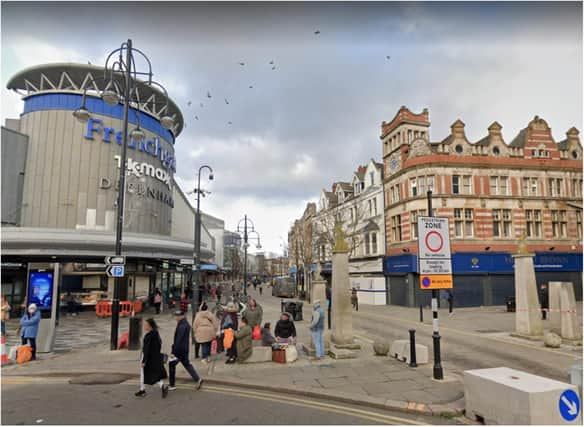Plan shows steps to tackle Covid-19 'Indian variant' if it spreads rapidly in Doncaster


In documents detailing the response of senior public sector teams which include the NHS and the council, show teams will quickly move to carry out testing in certain postcode areas should the Indian variant or any other variant of concern
A plan is in development for surge testing in the event that it is required following the identification of variants of concern in Doncaster.
Advertisement
Hide AdAdvertisement
Hide AdIt’s understood that the borough has had confirmed cases of the variant but this is less than five confirmed cases which triggers closer intervention.
The plan provides a ‘scalable framework’ which would target specific postcode and considers ‘logistical solutions, staffing resources and redeployment’ into other departments.
Considerations would also be undertaken for engagement in communities depending on ‘demographics and local intelligence’.
Council bosses say there is ‘surge capacity’ within the contact tracing team which will enable a ‘swift response to any increase in cases’
Advertisement
Hide AdAdvertisement
Hide AdIn the updated Covid-19 response strategy, the council has also updated what warrants a ‘contact’ with a person with the virus.
Definition of ‘a contact’ relates to a person who has been close to someone who has tested positive for Covid-19 anytime from two days before the person who tested positive developed their symptoms.
Or, if they did not have any symptoms, from two days before the date their positive test was taken – and up to 10 days after, as this is when they can pass the infection on to others.
A risk assessment may be undertaken to determine this, but a contact can be anyone who lives in the same household as another person who has Covid-19 symptoms or has tested positive for the virus.
Advertisement
Hide AdAdvertisement
Hide AdIn terms of the types of contact with someone with Covid-19 this includes:
Face-to-face contact including being coughed on Having a face-to-face conversation within one metre To being within one metre for one minute or longer without face-to-face contact To be within two metres of someone for more than 15 minutes – either as a one-off contact, or added up together over one day Travelled in the same vehicle or a plane Support bubbles – a network which supports two households An interaction through a perspex or equivalent screen with someone who has tested positive for Covid-19 is not usually considered to be a contact, as long as there has been no other contact such as those in the list above.
A spokesman for the DMBC public health team said: “There is surge capacity within our local contact tracing team which will enable a swift response to any increase in cases or any proactive calls that need to be made which will link directly into support required for self-isolation or access to testing.
“Any variants of concern identified will be escalated to the daily incident management team which will directly task locality bronze groups and wider teams to undertake required investigation or mitigation actions.”
*
In these confusing and worrying times, local journalism is more vital than ever. Thanks to everyone who helps us ask the questions that matter by taking out a subscription or buying a paper. We stand together. Liam Hoden, editor.
Comment Guidelines
National World encourages reader discussion on our stories. User feedback, insights and back-and-forth exchanges add a rich layer of context to reporting. Please review our Community Guidelines before commenting.